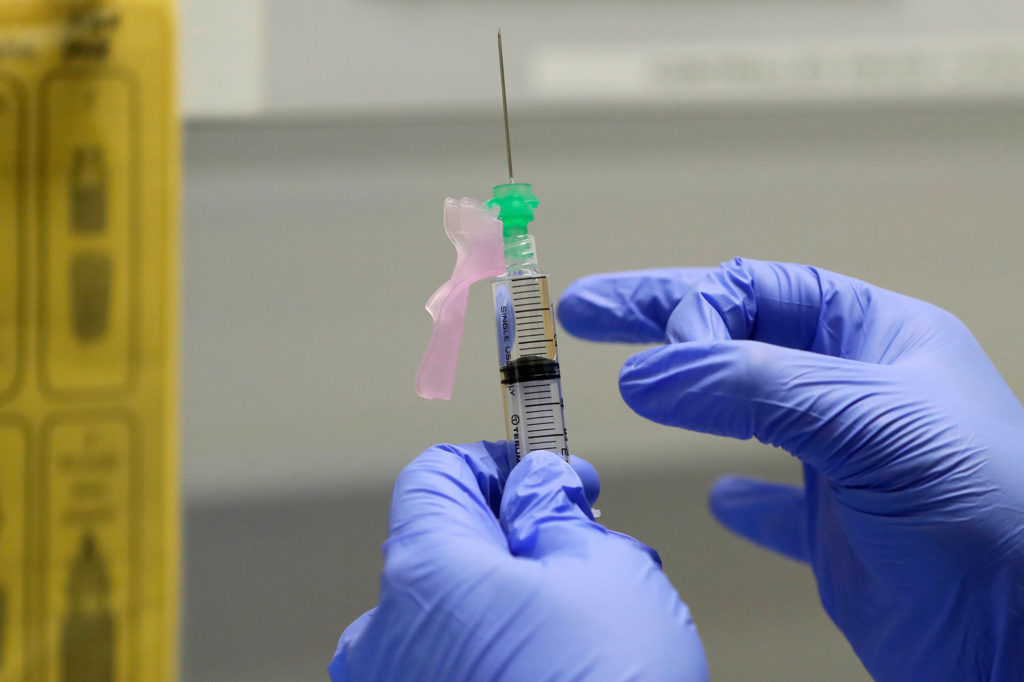[ad_1]
AstraZeneca’s coronavirus vaccine accurately follows genetic instructions programmed into it by its developers at Oxford University — successfully provoking a powerful immune response, according to an analysis by independent scientists.
“Until now, the technology hasn’t been able to provide answers with such clarity, but we now know the vaccine is doing everything we expected and that is only good news in our fight against the illness,” said David Matthews, a virology expert at Bristol University who led the research.
“This is an important study as we are able to confirm that the genetic instructions underpinning this vaccine, which is being developed as fast as safely possible, are correctly followed when they get into a human cell,” he said.
The findings, which were published on the pre-print server ResearchSquare, “represent the most in-depth analysis of any of the COVID-19 vaccine candidates, going significantly above and beyond any regulatory requirements anywhere in the world,” Bristol announced.
Work on the inoculation — which is being developed by scientists at Oxford’s Jenner Institute and the Oxford Vaccine Group — is undergoing Phase 3 trials.
“The Bristol researchers’ focus was to assess how often and how accurately the vaccine is copying and using the genetic instructions provided by the Oxford team. These instructions detail how to make the spike protein from the coronavirus, SARS-CoV-2 that causes COVID-19,” according to Bristol.
“The Oxford vaccine is made by taking a common cold virus (adenovirus) from chimpanzees and deleting about 20 percent of the virus’s instructions. This means it is impossible for the vaccine to replicate or cause disease in humans, but it can still be produced in the laboratory under special conditions,” it said.
“By removing these genetic instructions, there is space to add the instructions for the spike protein from SARS-CoV-2. Once inside a human cell, the genetic instructions for the spike protein need to be ’photocopied’ many times — a process known as transcription,” Bristol continued.
“In any vaccine system, it is these ’photocopies’ that are directly used to make large amounts of the spike protein,” it said.
“Once the spike protein is made, the immune system will react to it and this pre-trains the immune system to identify a real COVID-19 infection. So, when the person vaccinated is confronted with the SARS-CoV-2 virus, their immune system is pre-trained and ready to attack it.”
Oxford Professor Sarah Gilbert, a lead in the vaccine trial, said: “This is a wonderful example of cross-disciplinary collaboration, using new technology to examine exactly what the vaccine does when it gets inside a human cell.
“The study confirms that large amounts of the coronavirus spike protein are produced with great accuracy, and this goes a long way to explaining the success of the vaccine in inducing a strong immune response,” she added.
On Wednesday, health officials announced that a Brazilian volunteer in the AstraZeneca COVID-19 vaccine trial had died.
Joao Pedro Feitosa, a 28-year-old doctor in Rio de Janeiro, had been given a placebo and not the trial vaccine, according to Brazilian news outlet O Globo, which cited unnamed sources.
Oxford University said “there have been no concerns about safety of the clinical trial” after reviewing the case in Brazil.
The study previously faced a setback in September when one of the participants in the United Kingdom suffered an adverse reaction, prompting the company to temporarily pause the trials.
[ad_2]
Source link
